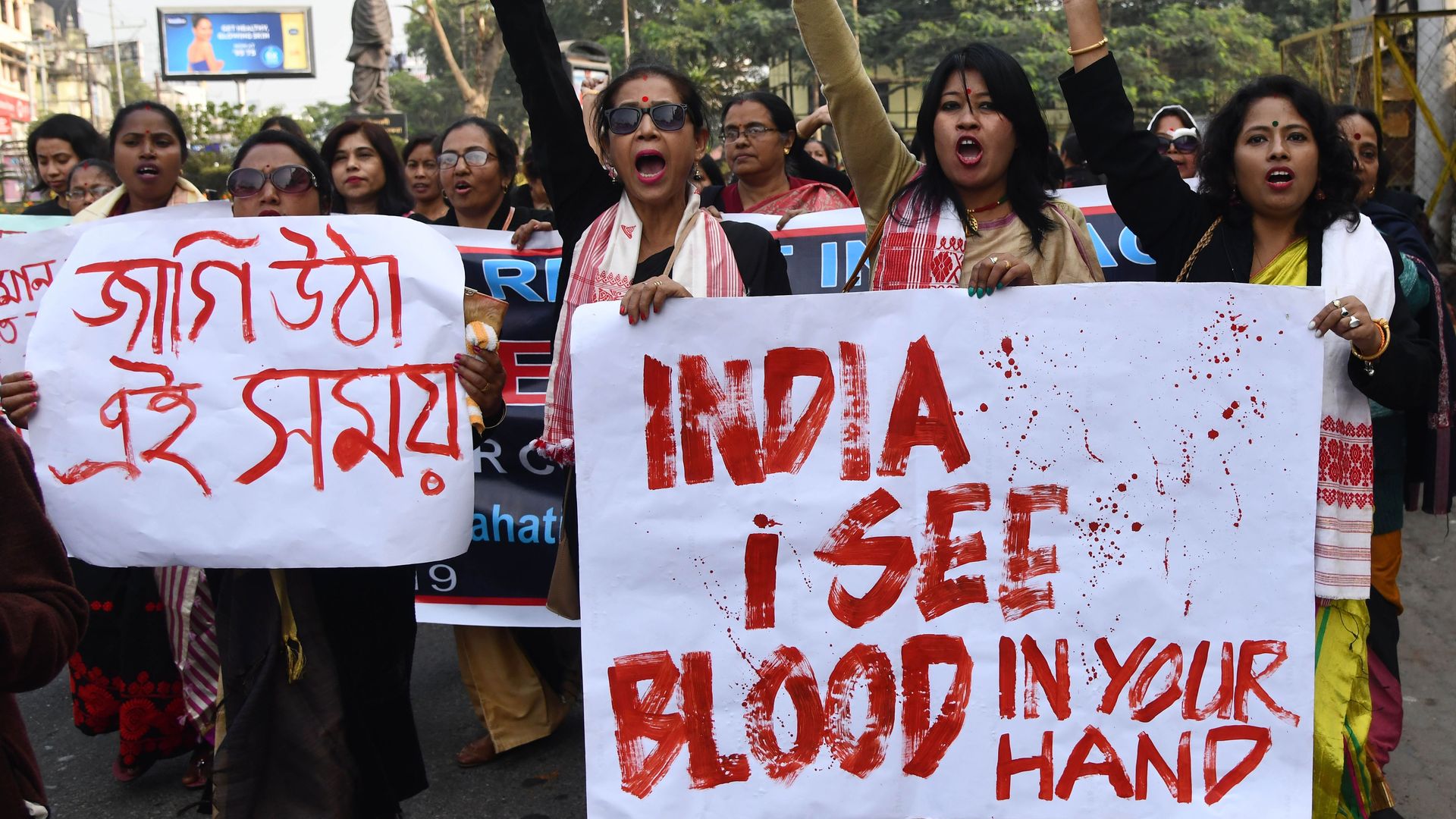Dec 21, 2019
India shuts down internet as protests over citizenship bill continue
Add Axios as your preferred source to
see more of our stories on Google.

Photo: Biju Boro/AFP via Getty Images
Add Axios as your preferred source to
see more of our stories on Google.

Photo: Biju Boro/AFP via Getty Images